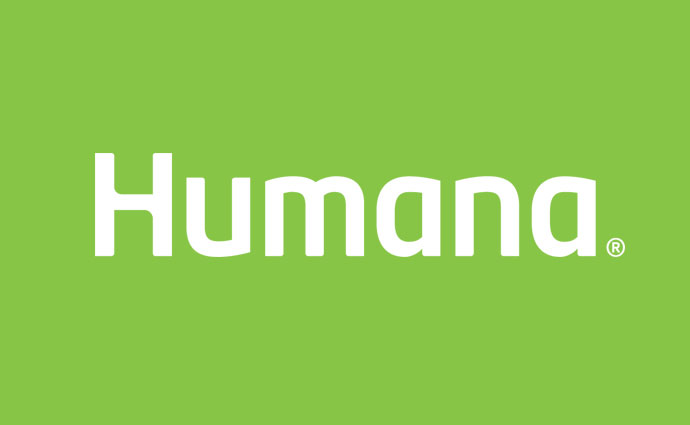Humana’s Value-Based Care MA Model Cuts ED Admissions, Costs
Members in Humana’s value-based care Medicare Advantage plans had lower hospital admission rates, but preventive care screenings dropped due to the pandemic.

Source: Humana logo
- Humana’s value-based care models in Medicare Advantage helped lower emergency room admissions and, in turn, boosted savings for Medicare Advantage members, according to the payer’s recent Value-based Care report.
Each year, Humana releases its Value-based Care Report which gives some perspective on how one of the nation’s largest Medicare Advantage payers is progressing with value-based care arrangements for the senior population.
Importantly, the data from this report largely reflects pre-coronavirus pandemic trends.
In 2020, the report covered 2.41 million Medicare Advantage beneficiaries whose providers engaged in value-based contracting with Humana. Tangentially, slightly over 85 percent of these beneficiaries had two or more chronic conditions.
Humana compared these beneficiaries with those in Medicare Advantage plans that do not leverage value-based reimbursement, as well as with Original Medicare beneficiaries.
READ MORE: Humana Launches Two More Value-Based Program for Specialty Care
“The premise of human care—where we listen to and address the specific physical health, behavioral health and health-related social needs of our members and their care teams – is amplified in value-based care agreements,” Bruce Broussard, president and chief executive officer at Humana, explained in the press release.
The report covered a broad range of subjects including provider collaboration, preventive care, patient outcomes, and integrating social determinants of health. It also touched on the payer’s population health strategy and COVID-19 response.
Preventive care progressed until COVID-19 struck
Humana discovered that, overall, value-based care Medicare Advantage members underwent preventive screenings eight percent more frequently than their standard Medicare Advantage counterparts. Specifically, they were screened for colorectal cancer and received the diabetic eye exam 19 percent more often.
The value-based care Medicare Advantage members also saw four percent greater medication adherence than their counterparts.
Importantly, these results stemmed from preventive care conducted prior to the coronavirus outbreak. The pandemic caused a shift for Humana’s Medicare Advantage members towards telehealth as well as a steep decline in preventive care screenings. The payer sent out in-home screening kits to mitigate this trend.
READ MORE: Humana Tackles CKD Through Home Healthcare, Care Coordination
Nonetheless, providers in value-based care arrangements exceeded non-value-based care providers on every HEDIS measure for 2019, based on the data that Humana was able to collect.
Home healthcare evolution accompanied a drop in hospital visits
Humana saw a significant difference between its value-based care Medicare Advantage members’ hospital utilization and non-value-based care Medicare Advantage or Original Medicare members’ utilization.
“Our collaboration with primary care physicians and their care teams is helping to deliver simpler and more convenient care and reducing avoidable hospitalizations,” said Broussard.
Humana’s value-based care Medicare Advantage members had over 210,000 fewer days of inpatient stay than non-value-based care Medicare Advantage members. They also sought emergency medicine less often and visited the emergency room 10.3 times less often with a hospital admission rate that was 29.2 percent lower than Original Medicare members.
Like many during the pandemic, Humana members were largely restricted to their homes. Humana at Home representatives reached out to over one million at-risk members and coordinated meal deliveries, conducted social determinants of health screenings, and offered community-based organization referrals.
READ MORE: Humana Ups COVID-19 Testing With At-Home, Drive-Thru Testing
Members who received assistance from Humana at Home had higher performance in nearly every Medicare Advantage Star Ratings quality measure, including medication refill adherence and 24 percent lower readmission rates.
“Physicians know that cracking the code on which patients need to return to the office and which don’t requires a delicate balance,” the report noted.
Members will need to be able to trust in-person care, understand their next steps in care, and know that their care will be covered in order for proper utilization of value-based home healthcare to advance.
Costs decreased for value-based care MA members and providers alike
Lower hospital admissions translated into almost 19 percent—or around $4 billion dollars—in healthcare savings for value-based care Medicare Advantage members over their Original Medicare counterparts.
“Emergency room visits and hospital admissions contribute to driving costs within America’s health care system,” the report stated. “Extensive preventive screenings, coordination with care teams, and effective management of chronic conditions and adherence correlate to lower utilization rates.”
Being in a value-based care model with Humana also benefitted providers, the report asserted.
Providers who were in a value-based care model were reimbursed 15.6 cents of every healthcare dollar spent, more than double what providers in fee-for-service models received (6.6 cents). Providers who engaged in Humana’s global value model earned on average 4.5 times more than Original Medicare providers.
“Delivering a better health care experience for members demands collaboration,” said Brian Powers, MD, deputy chief medical officer at Humana. “By finding new means of working together, we can better understand our members’ needs and personalize our care to address what’s most important to them. That’s human care in action, and it’s never been more important.”
Humana recently announced the launch of two new value-based care models for specialty care providers, citing the successes of past models in its last value-based care report.
